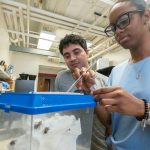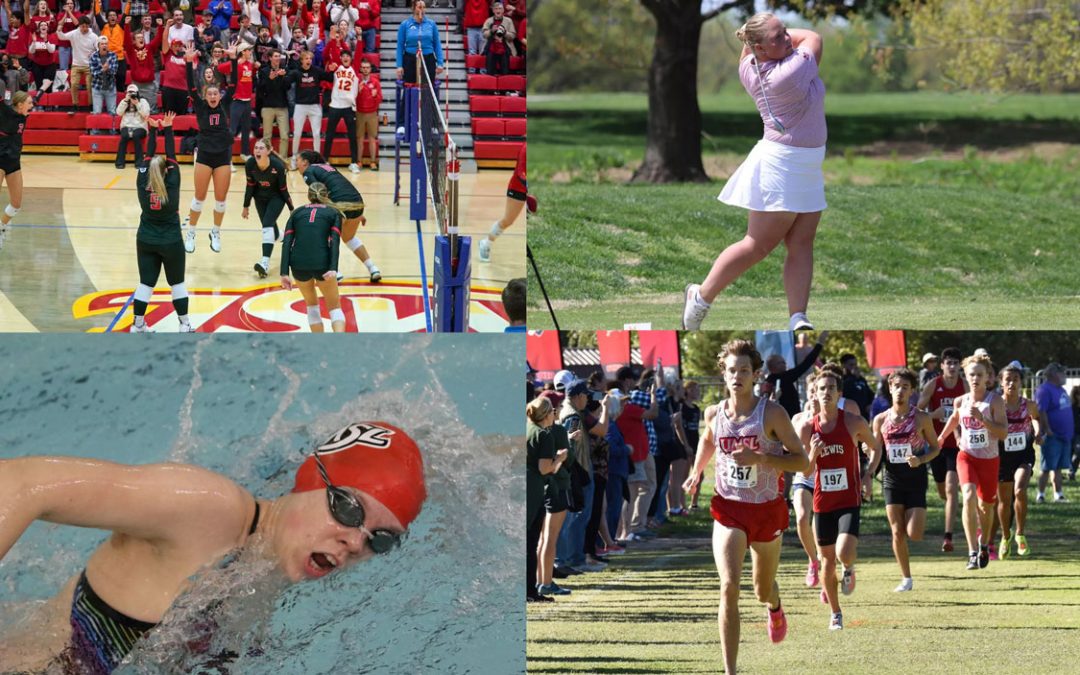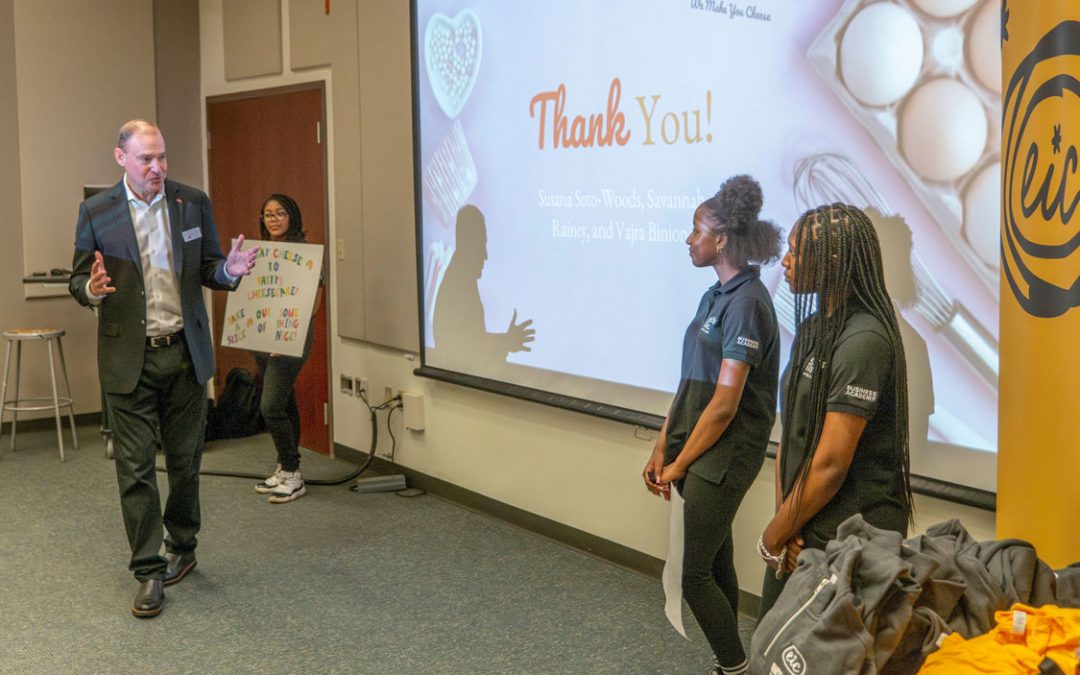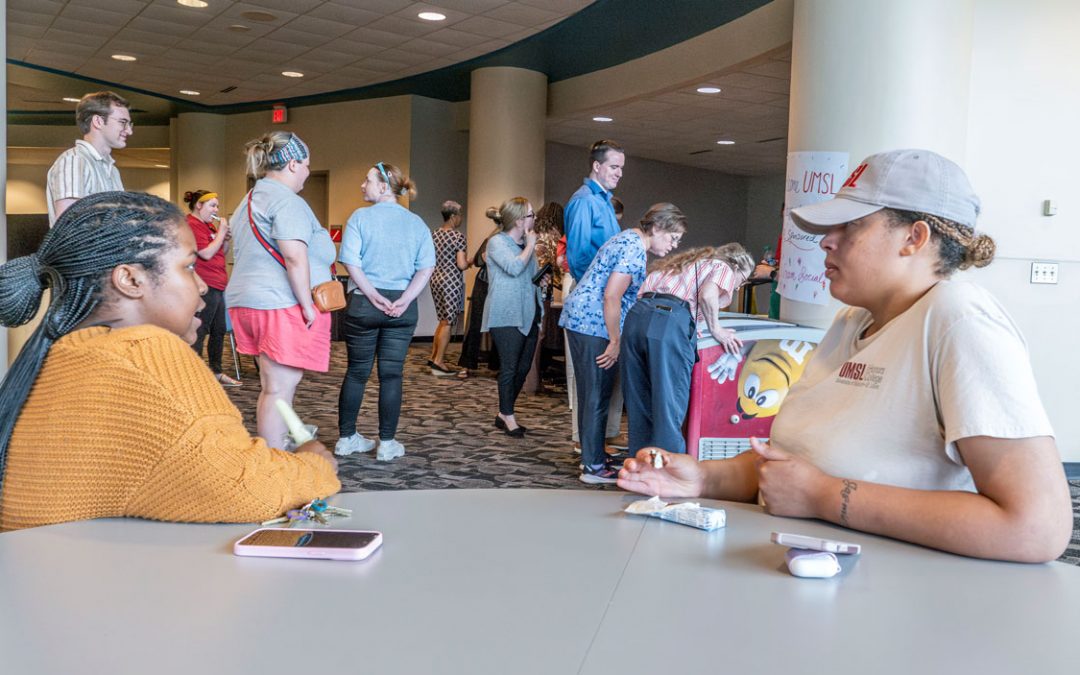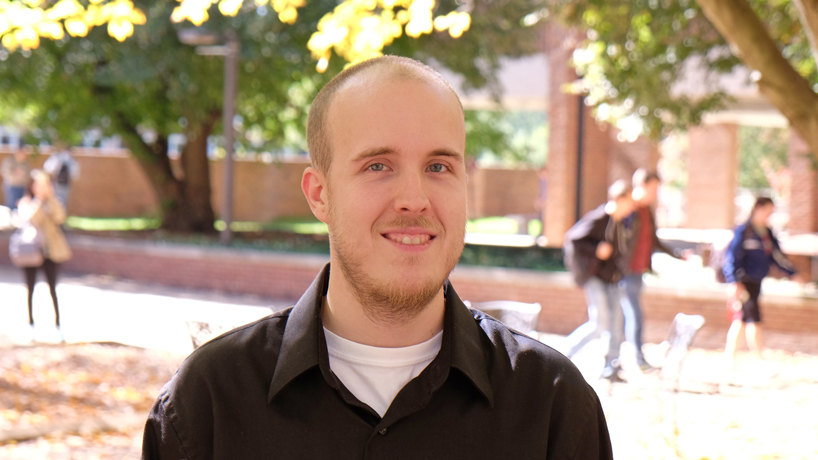
Public policy major Mark Stone was impressed with the simplicity of a new statewide program to increase the number of Missourians with an associate degree. (Photo by August Jennewein)
Mark Stone was already hard at work on his bachelor’s degree in public policy at the University of Missouri–St. Louis when an unexpected opportunity called the Missouri Reverse Transfer Program came across his radar.
UMSL’s director of community college relations, Melissa Hattman, reached out to notify Stone that all he needed to earn an associate degree was a three-credit college algebra course thanks to MRT, a pilot project at the time.
“When I transferred from St. Louis Community College–Meramec to UMSL, I was only a few credits short of my associate degree,” Stone said. “I met with Melissa, filled out this one form, and I was so impressed with how simple it is.”
Now including all public colleges and universities in Missouri along with many independent institutions, MRT allows students at four-year institutions who previously earned at least 15 credit hours at a qualifying two-year college to transfer credit hours back to the two-year college for an associate degree.
Stone, whose field of study matches his interest in how policy is made, said adding the credential further inspires him to finish up his bachelor’s degree – and is also helpful as he looks toward a career, hopefully in diplomacy.
“It feels great,” Stone said. “It’s a motivating factor for me, and it’s nice to be able to say I have it, but also has improved my marketability to future employers.”
The effort stems from a national initiative aimed at increasing the number of Americans with college degrees to 60 percent before 2025. It’s estimated that 700,000 people across Missouri could be eligible to earn a credential through MRT, including 400,000 in the St. Louis region, said Hattman, who is a member of the statewide steering committee.
“The spirit of the legislation that led to MRT is to help Missourians earn credentials,” she added. “In addition to current college students that are eligible, all of us throughout the state will be reaching out to those who have some college and no degree to let them know about this opportunity.”
Stone is one of two Missouri students featured in a video recently released by MRT to help raise awareness of the program. He’s also had conversations with fellow UMSL students, who seem to like the idea.
“Even if it doesn’t necessarily apply to them, the general consensus is ‘Wow, this just makes sense – why not have a program that rewards students for the credits that they’ve earned?'” Stone said. “I recommend the program for people who are within a reasonable amount of credits from their associate degree. Some people may not need anything, some people may only need one class.”
Stone’s own path has taken some unexpected turns, starting with dropping out of high school at 15 years old and working his way up in the retail world as a young adult. After becoming a multi-unit manager, he was ready for a change.
“I needed to do something different, and my wife and I decided that my going back to school would be a good next step,” Stone said.
After a couple years at Meramec, Stone transferred to UMSL as a political science major, then switched to public policy with a focus on foreign conflict. Expecting to finish his bachelor’s degree in May, Stone is taking 19 credit hours, working part-time, beginning his job hunt and seeking an internship this fall.
Hattman noted that nearly 1,000 students among those who have transferred to UMSL in the last year are eligible for the program. During last year’s pilot phase, 51 of 530 eligible UMSL students opted in.
“It is inspiring students to move on and finish their bachelor’s degree,” Hattman said. “It can also help students qualify for more job opportunities and higher pay.”
Learn more about the program here.












